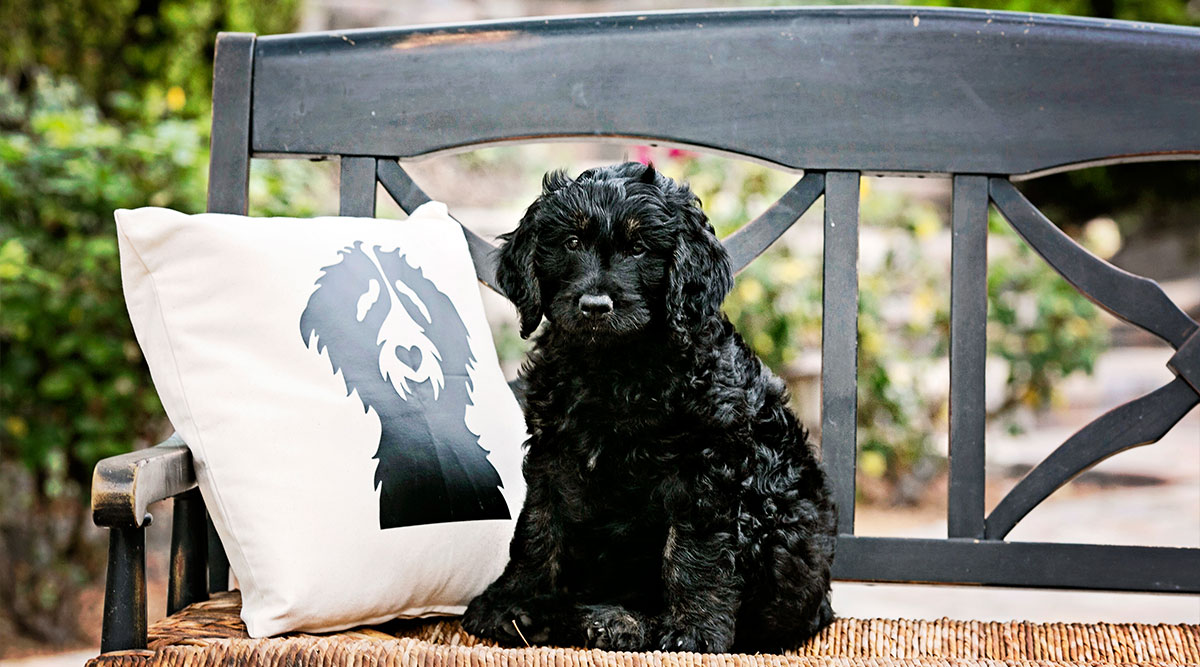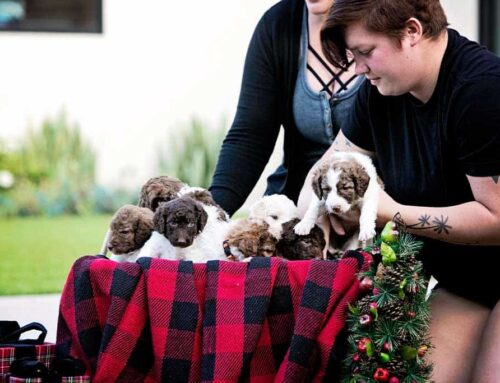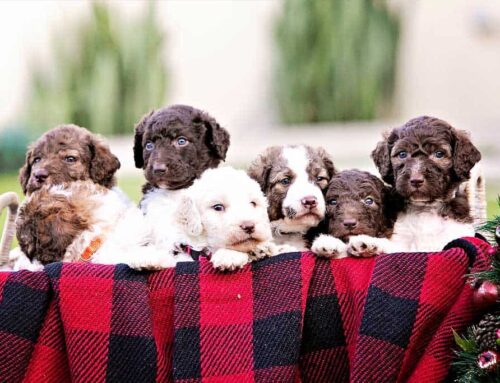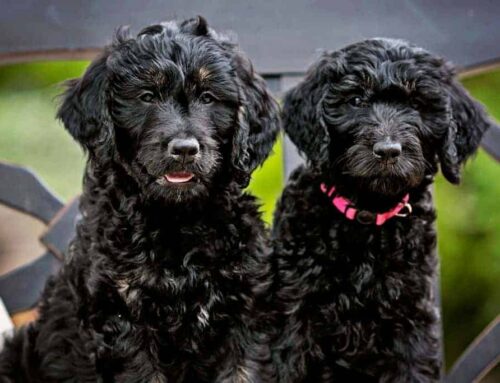What is the major difference between F1 and F1B Goldendoodles, and what do these codes indicate? It’s a common question for people looking to adopt this designer breed. It can be intimidating to choose the right type, so let this article be your guide before you decide!
Introducing the Goldendoodle
The Goldendoodle is a cross-breed with Golden Retriever and Poodle heritage. They are best known for their affectionate and intelligent nature, making them a suitable choice as a family or service dog. They are gentle and playful, craving your attention warm touch always.
By appearance, Goldendoodle may have curly hair and floppy ears and come in different coat colors such as cream, golden yellow, brown, and more. Depending on the parent, they can be standard-sized or miniature. Our dedicated guide explains different types of Goldendoodle colors and their patterns.
When adopting this hybrid, a breeder may introduce several generation types and terms that might baffle you as a first-time dog owner. What is the crucial difference between F1 and F1B Goldendoodles, and what do these mean?
These code-like terms indicate the Goldendoodle generation that influences the dog’s physical traits, temperament, and potential health problems. Referring to a Goldendoodle Generation Chart can help you understand these terms better, providing a clearer picture of the dog’s lineage and expected characteristics.
Difference between F1 and F1B Goldendoodles
To help you understand these generation types better, we will break down every element of these ‘codes’.
- F- Every generation name of doodles begins with F, which means ‘Filial Hybrid’. It indicates that the pup is an offspring of two purebred canines.
- Number- the number stands for the dog’s generation. Numeral 1 indicates the first generation; it could also be 2 (second generation), or 3 (third generation), etc.
- B- The B found at the end of the code means a backcross. This term refers that the Goldendoodle has been bred back to a purebred Poodle. If the generation name contains two B’s, it indicates that the Goldendoodle underwent backcrossing twice.
What is the F1 Goldendoodle?
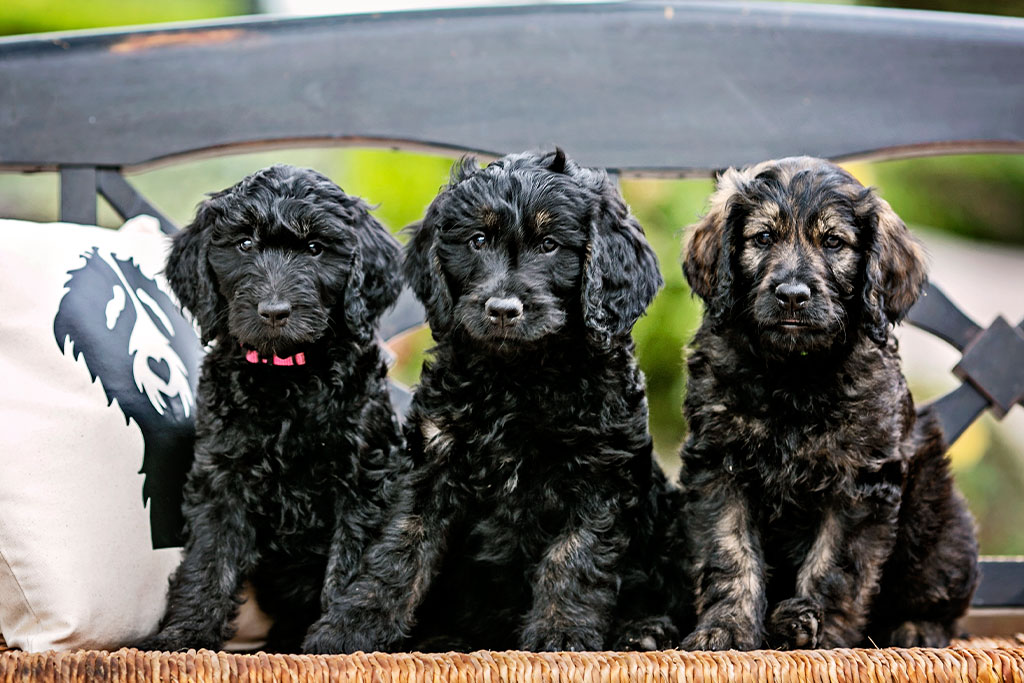
F1 represents the Goldendoodle with purebred Golden Retriever and Poodle parents. It is a first-generation hybrid cross that has half or 50% of the genetics of each parent. Although breeders and owners know that dominant personality and physical traits will vary greatly, it is still a popular choice.
What makes the F1 Goldendoodle a top choice is the Hybrid Vigor, a health benefit found in cross-bred dogs. They are known to be healthier than purebred parents since they will only be inheriting genetic issues observed in both parents.
What is the F1B Goldendoodle?
The F1B Goldendoodle is typically 25% Golden Retriever and 75% Poodle. This offspring is procreated by backcrossing an F1 Goldendoodle with a 100% Poodle, although the breeder could also choose a purebred Golden Retriever.
Choosing 100% Poodle as the parent delivers more desirable traits for the pup. The main difference between F1 and F1B Goldendoodles is the hypoallergenic and non-shedding features, making the F1B generation the most popular among all types.
Comparing F1 and F1B Goldendoodles
First-time dog owners often don’t know the specific difference between F1 and F1B Goldendoodles. Here is a comparison of the physical and personality traits of these two generation types.
Temperament
F1 and F1B Goldendoodle dogs are similar in temperament. They are sweet, laidback, and calm in general. They are both friendly and like to hang out with their humans. They are also sociable and are eager to make new friends.
Shedding
The amount of shedding can vary from one pup to another, but F1B Goldendoodles are typically non-shedding, while the F1 Goldendoodles can still shed a little. Since the F1B backcross has 75% Poodle genetics, it inherits the dominant non-shedding quality of the purebred parent.
Based on shedding quality, it’s safe to say that F1B Goldendoodles are more hypoallergenic than F1 Goldendoodles.
Grooming
Goldendoodles need regular grooming regardless of their generation. However, F1B pups require higher care and maintenance compared to F1. Since their hair grows 3-5 inches long and is curly, the F1B’s coat should be brushed and clipped every few weeks.
Weight and Size
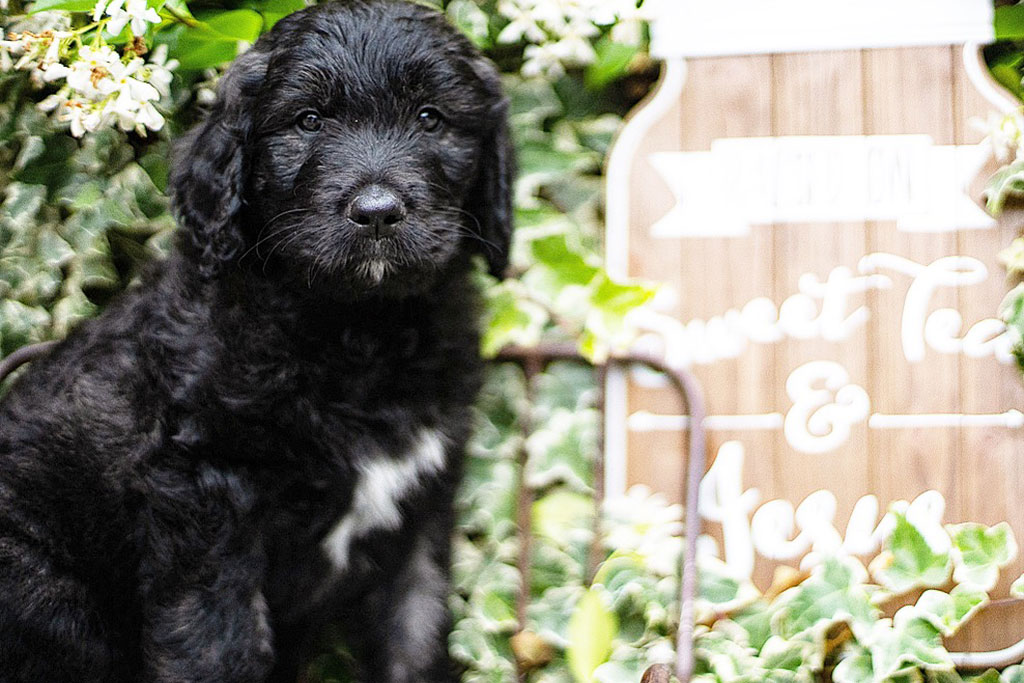
There are no significant differences in F1 and F1B Goldendoodles in terms of size in weight. It is dependent on the size of the parents. For instance, if the parent is a purebred miniature Poodle, the offspring would likely be small-sized as well.
Health
First-generation Goldendoodles, owing to Hybrid Vigor, possess the best health characteristics. F1B pups have less of this vigor trait due to the backcrossing, making them have a higher susceptibility for certain diseases.
What should you choose?
Goldendoodles are a lovely and friendly dog breed. The difference between F1 and F1B Goldendoodles varies greatly for shedding and health traits. However, both generations are excellent family dogs and can make life more enjoyable and brighter.
